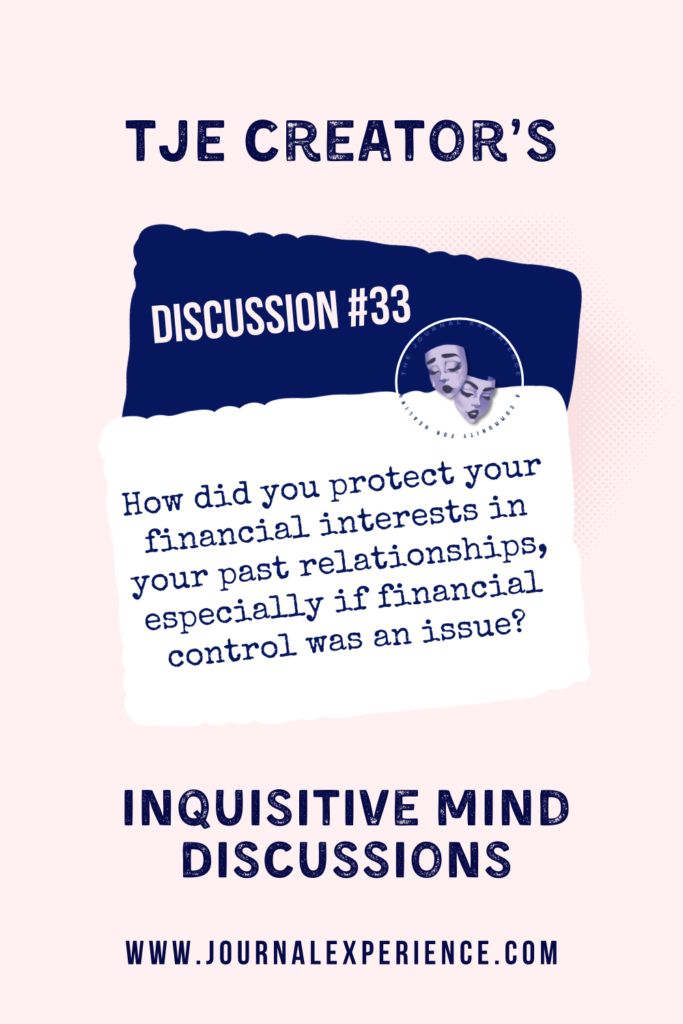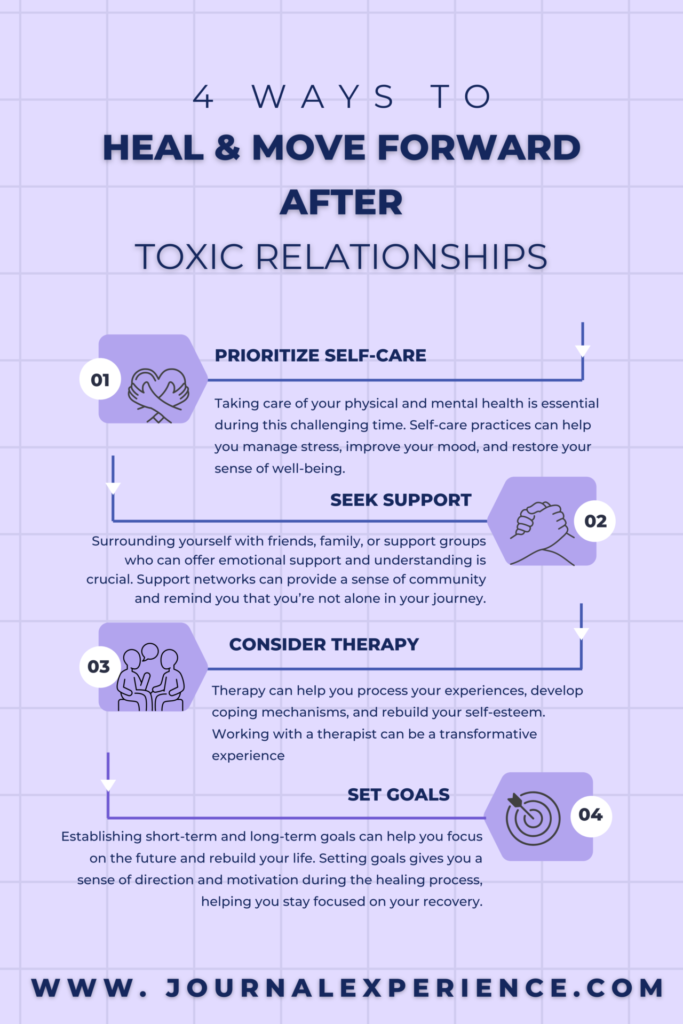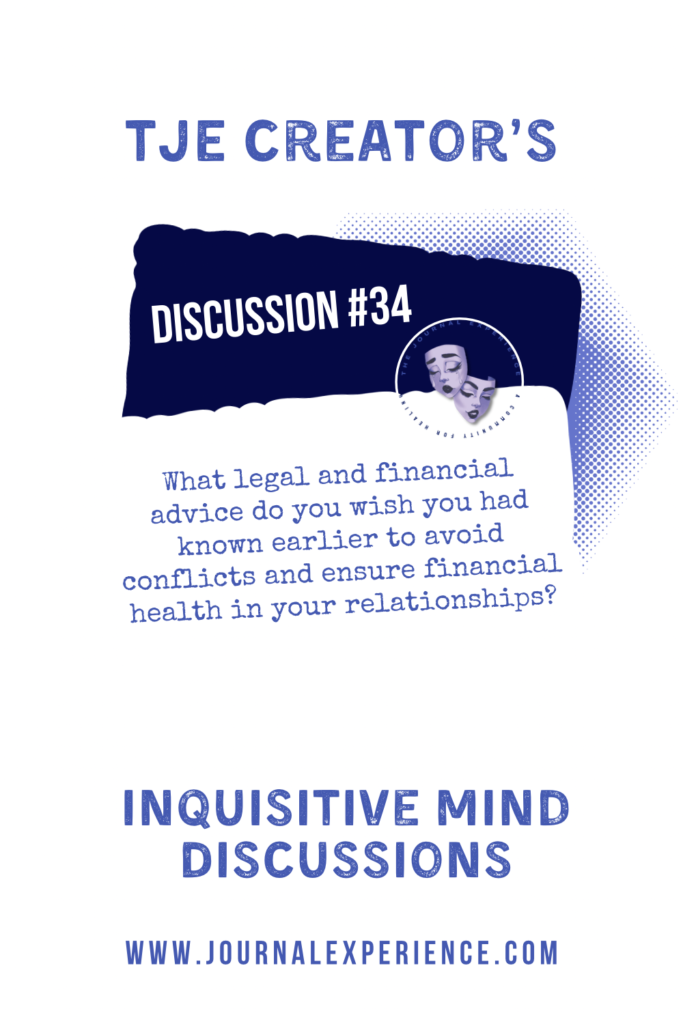Toxic relationships can profoundly impact your emotional, mental, and physical well-being, but the consequences often extend beyond the emotional realm.

Legal and financial challenges frequently arise, making it essential to understand your rights and take proactive steps to protect your interests.
This blog post will guide you through navigating the legal and financial aspects of ending a toxic relationship, helping you rebuild your life with confidence.
Navigating Toxic Waters
The legal complexities of toxic relationships can be overwhelming, but gaining a solid understanding of your rights and options is the first step towards reclaiming control over your life. From domestic violence to child custody disputes, knowing what to expect and how to respond is crucial for safeguarding your future.
1. Domestic Violence
Domestic violence is a serious issue that requires immediate action. If you have experienced any form of abuse, seeking legal protection is crucial. Domestic violence can take many forms, including physical, emotional, psychological, and financial abuse. The impact of such experiences can be long-lasting, affecting your sense of safety and well-being.
Action Steps:
- Contact your local law enforcement or a domestic violence shelter for immediate assistance.
- Consider obtaining a restraining order to protect yourself from further harm.
For survivors in the early stages of escape, the FREE Masterclass (EVERGREEN version) offers compassionate relationship education to help you untangle confusion, rebuild emotional clarity, and discover tools for stronger boundaries.
2. Stalking
Stalking is a serious crime that can instill fear and anxiety in its victims. It often involves repeated, unwanted attention or harassment that can escalate over time. Stalking can be perpetrated by a current or former partner, and it’s crucial to take it seriously.
Action Steps:
- Document evidence of stalking behavior, including messages, emails, or encounters, to support your case.
- Report incidents to the police to ensure your safety and take legal action against the perpetrator.
3. Child Custody and Support
When children are involved in a toxic relationship, the stakes are even higher. Understanding your rights regarding child custody, visitation, and child support is vital for protecting your children’s well-being. Custody battles can be emotionally draining and legally complex, making it essential to have expert guidance.
Action Steps:
- Consult with a family law attorney to discuss your specific situation and explore your options for custody and support arrangements.
- Consider mediation as a way to resolve disputes amicably and avoid lengthy court battles.
4. Property Division
Separation or divorce often involves the division of shared property, which can lead to disputes and financial stress. Property division can be a complex issue, especially when emotions are running high. Understanding your rights and the potential financial implications is essential for a fair settlement.
Action Steps:
- Make a detailed inventory of shared assets and liabilities, including property, bank accounts, and debts.
- Consult with a financial advisor or attorney to understand the implications of dividing assets and debts.

Financial Planning After a Toxic Relationship
Financial recovery after a toxic relationship is an essential part of rebuilding your life. Whether your finances were directly impacted by the relationship or you’re starting fresh, careful planning is necessary to regain financial stability and confidence.
1. Assess Your Financial Situation
Understanding your current financial situation is the first step towards recovery. Start by evaluating your income, expenses, assets, and debts. This assessment will give you a clear picture of where you stand financially and help you make informed decisions about your future.
Action Steps:
- Create a detailed budget to track your spending and identify areas where you can cut costs.
- Assess any debts incurred during the relationship and develop a plan to pay them off.
2. Rebuild Your Credit
If your credit has been damaged due to the relationship, it’s important to take steps to rebuild it. A strong credit score is essential for securing loans, renting a home, and achieving financial independence.
Action Steps:
- Pay all bills on time and avoid missing payments, as this will improve your credit score over time.
- Limit your use of credit cards and work on paying down any existing balances.
3. Seek Financial Counseling
A financial counselor can provide personalized advice on managing your finances after a toxic relationship. They can help you create a realistic budget, develop a debt repayment plan, and set financial goals for the future.
Action Steps:
- Schedule a consultation with a financial counselor to discuss your specific needs and goals.
- Use the counselor’s advice to create a long-term financial plan that aligns with your new circumstances.
4. Utilize Financial Planning Tools
Online financial planning tools can help you stay on top of your finances by tracking your spending, creating budgets, and setting financial goals. These tools are designed to make financial management easier and more accessible, even for those who may not have a strong background in finance.
Action Steps:
- Explore different financial planning tools or apps to find one that suits your needs.
- Use these tools regularly to monitor your progress and adjust your budget as needed.
If you’re also rebuilding your emotional clarity and decision-making after toxic dynamics, the Thrive in Love Online Course offers empowering education to help you strengthen inner stability and foster secure future relationships.
1. Document Everything
Keeping a detailed record of incidents, conversations, and any evidence that could be relevant in a legal case is crucial. This documentation can be used in court to support your claims and protect your rights.
Action Steps:
- Create a journal or digital record of all relevant incidents, including dates, times, and descriptions.
- Store copies of any communication, such as emails or text messages, that could serve as evidence.
2. Seek Legal Counsel
Consulting with an attorney who specializes in family law or domestic violence is essential for understanding your rights and options. An experienced attorney can guide you through the legal process, represent your interests in court, and help you achieve a favorable outcome.
Action Steps:
- Schedule a consultation with a qualified attorney to discuss your case and explore your legal options.
- Consider hiring an attorney to represent you in court, especially if your case involves complex issues like child custody or property division.
3. Know Your Rights
Familiarizing yourself with the laws in your jurisdiction regarding domestic violence, stalking, child custody, and property division is crucial. Knowledge is power, and understanding your rights is the first step toward protecting yourself.
Action Steps:
- Research the laws in your area related to your specific situation.
- Consider attending workshops or seminars on legal rights for individuals in toxic relationships.

Healing and Moving Forward
Healing from a toxic relationship is a deeply personal journey that requires time, effort, and support. Prioritizing self-care and seeking help from professionals can aid in your recovery and help you build a positive future.
1. Prioritize Self-Care
Taking care of your physical and mental health is essential during this challenging time. Self-care practices can help you manage stress, improve your mood, and restore your sense of well-being.
Action Steps:
- Engage in activities that promote relaxation, such as exercise, meditation, or spending time in nature.
- Make self-care a daily priority, even if it’s just taking a few minutes each day to do something you enjoy.
2. Seek Support
Surrounding yourself with friends, family, or support groups who can offer emotional support and understanding is crucial. Support networks can provide a sense of community and remind you that you’re not alone in your journey.
Action Steps:
- Reach out to trusted friends or family members for support.
- Consider joining a support group for individuals recovering from toxic relationships.
3. Consider Therapy
Therapy can help you process your experiences, develop coping mechanisms, and rebuild your self-esteem. Working with a therapist can be a transformative experience, allowing you to explore your emotions and gain insights into your past relationships.
Action Steps:
- Explore different types of therapy, such as cognitive-behavioral therapy (CBT) or trauma-focused therapy, to find one that suits your needs.
- Schedule regular therapy sessions to work through your emotions and develop a plan for moving forward.
4. Set Goals
Establishing short-term and long-term goals can help you focus on the future and rebuild your life. Setting goals gives you a sense of direction and motivation during the healing process, helping you stay focused on your recovery.
Action Steps:
- Identify specific goals related to your personal growth, career, or relationships.
- Break down your goals into manageable steps and track your progress over time.
To deepen your healing journey in community, the 3 Day Thriving Relationship Workshop offers immersive support to help you reset your relationship blueprint and find empowerment after relational harm.
Overview
Navigating the legal and financial complexities of a toxic relationship can be daunting, but you don’t have to do it alone. By understanding your rights, seeking appropriate legal and financial advice, and taking proactive steps to protect your interests, you can begin to heal and rebuild your life with confidence.

Join The Journal Experience, an online community dedicated to supporting individuals recovering from toxic relationships. As a member, you’ll gain access to guided journals, workbooks, ebooks, a poetry gallery, and a forum community where you can connect with others who understand what you’re going through. Whether you’re looking to share your story, learn more about emotional trauma recovery, or find a supportive space to heal, TJE has something for you.
Not ready to join yet? Subscribe to our newsletter to receive TJE Burn Book for free, along with valuable resources, tips, and insights delivered directly to your inbox. Your path to healing starts here—become a part of The Journal Experience today.